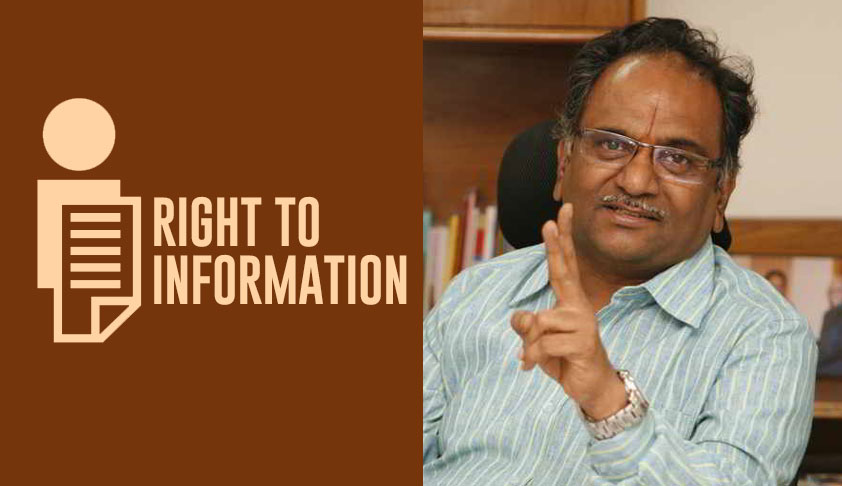CIC Sridhar Acharyulu Retires After A Proactive Term As RTI Custodian
Manu Sebastian
21 Nov 2018 8:27 PM IST

Next Story
21 Nov 2018 8:27 PM IST
"It is undeniable that his tenure has strengthened the RTI regime, shaping it as a powerful tool to ensure constitutional governance"Professor M Sridhar Acharyulu(also known Madabhushi Sridhar) has retired as Central Information Commissioner yesterday, after an eventful tenure of five years. A law professor at NALSAR Hyderabad and author of several books of law and journalism, he was...
